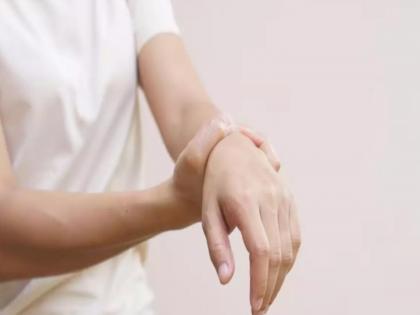Pune Reports 6 New Suspected Guillain-Barré Syndrome Cases, Total Reaches 73
By Lokmat English Desk | Updated: January 25, 2025 10:00 IST2025-01-25T09:36:17+5:302025-01-25T10:00:10+5:30
The risk of Guillain-Barre Syndrome (GBS) in Pune city is on the rise, with six new cases reported recently, ...

Pune Reports 6 New Suspected Guillain-Barré Syndrome Cases, Total Reaches 73
The risk of Guillain-Barre Syndrome (GBS) in Pune city is on the rise, with six new cases reported recently, bringing the total to 73. On Tuesday, the state health department set up a Rapid Response Team (RRT) to investigate the sudden spike in cases of this immunological nerve disorder, following the detection of 24 suspected cases initially.
According to a PTI report, "The total number of GBS cases increased to 73, comprising 47 men and 26 women. Of these, 14 are on ventilator support," a state health department official stated. To address the outbreak, nearly 2,000 houses within the Pune Municipal Corporation limits, 1,750 residences under the Chinchwad Municipal Corporation’s jurisdiction, and 3,522 houses in rural areas have been surveyed. In total, over 7,000 households in the city have been covered, officials confirmed.
In response to the growing number of cases, the Neurological Society of Pune issued a public alert, urging people not to panic and reassuring them that GBS is a "treatable condition."
Also Read: What Is Guillain-Barré Syndrome? Symptoms, Causes, and Effective Treatment Options
What is Guillain-Barre Syndrome?
Guillain-Barre Syndrome is a rare neurological disorder in which the immune system mistakenly attacks the body's peripheral nervous system—the network of nerves that transmits signals from the brain and spinal cord to the rest of the body. While the exact cause of GBS is unknown, it is often triggered by a viral or bacterial infection, such as a respiratory or gastrointestinal illness.
Symptoms of GBS include weakness, fatigue, prickly pain in the feet, hands, arms, legs, and face, and, in some cases, difficulty breathing. Treatment typically involves intravenous immunoglobulin or plasma exchange, and some patients may require ventilatory support. Although there is currently no cure for GBS, many patients respond well to treatment. Recovery time can vary widely, ranging from a few weeks to several years.
Open in app